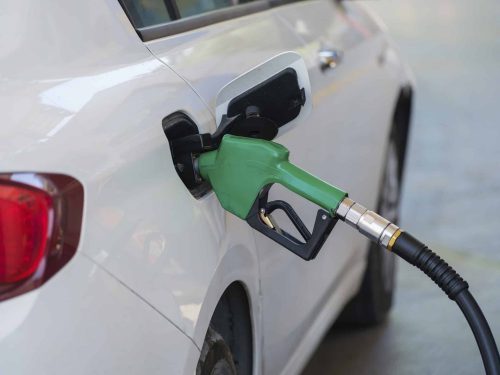
Welcome to our comprehensive guide on fuel efficiency! If you’re tired of watching your hard-earned money go up in smoke at the gas station, you’re in the right place. In this post, we will share 10 proven tips that will help you optimize your vehicle’s fuel consumption and save money on gas. From simple maintenance tasks to smart driving habits, we’ve got you covered. Let’s dive in and start maximizing your mileage!
Regular vehicle maintenance is the foundation of fuel efficiency. Schedule routine check-ups with your mechanic to ensure that your engine, tires, and exhaust system are in optimal condition. Replacing air filters, spark plugs, and addressing any mechanical issues will enhance your vehicle’s overall performance and fuel economy.
Properly inflated tires reduce rolling resistance and improve fuel efficiency. Low tire pressure can cause your vehicle to consume more fuel, so make it a habit to check your tire pressure at least once a month and before long trips. Follow the manufacturer’s recommended pressure levels for the best results.
Using the manufacturer-recommended motor oil can significantly impact your fuel efficiency. High-quality, low-viscosity oil reduces engine friction and helps your engine operate more efficiently. Refer to your vehicle’s manual for the recommended oil type and change it as per the suggested intervals.
Idling consumes unnecessary fuel. If you anticipate being stopped for more than a minute, it’s best to turn off the engine. For example, if you’re waiting in a drive-thru or stopping for extended periods, cutting the engine will save more fuel than restarting it.
Remove unnecessary items from your car to reduce weight. Extra weight decreases fuel efficiency by forcing the engine to work harder. Clean out your trunk and remove roof racks when they are not in use to improve aerodynamics and save fuel.
Before heading out on your journey, plan your routes to avoid traffic jams and road closures. Utilize GPS or smartphone apps to find the most fuel-efficient paths. Shorter and less congested routes can save both time and fuel.
Avoid aggressive driving habits like rapid acceleration, hard braking, and excessive speeding. These actions consume more fuel and can put extra stress on your vehicle. Instead, practice smooth and steady driving to achieve better fuel efficiency.
On long, uninterrupted stretches of road, engage cruise control. It helps maintain a constant speed, which can improve your fuel efficiency by preventing unnecessary speed fluctuations.
Combine multiple errands into one trip to minimize the number of cold starts. A warm engine operates more efficiently, so reducing cold starts can save fuel in the long run.
When possible, consider alternative means of transportation, such as carpooling, biking, or public transit. Not only will this reduce fuel consumption, but it will also contribute to a greener environment.
In conclusion, by implementing these 10 fuel efficiency tips, you can make a significant impact on your vehicle’s gas mileage and your wallet. Regular maintenance, efficient driving habits, and conscious choices all play a role in optimizing fuel consumption. Remember, the key to fuel efficiency is a combination of smart driving and proper vehicle care. Start saving on gas today by adopting these fuel-saving practices. Safe and fuel-efficient driving!
